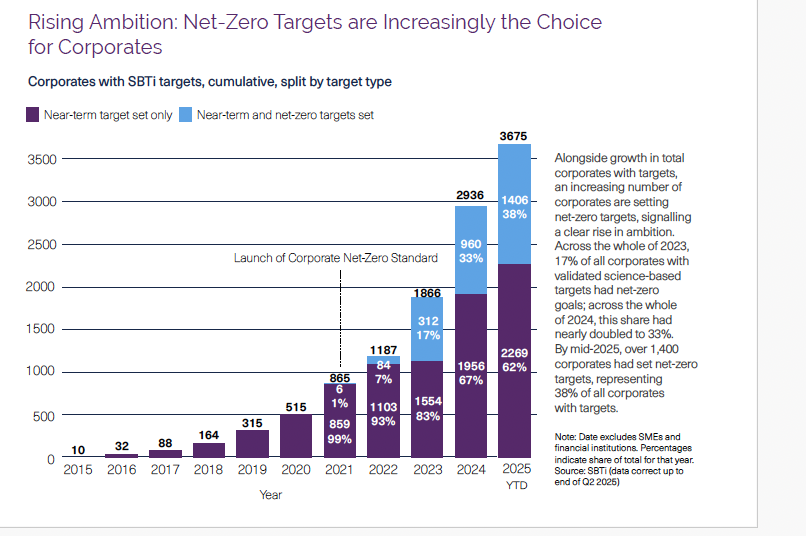11,000 and counting: SBTi touts uptick in corporate emissions-cutting plans
Close to 40 percent of companies with validated pledges have both near-term and net-zero targets. Read More

- Industrial manufacturers account for one-third of companies with emissions targets.
- Pledges by Chinese companies tripled in the past 18 months, to 450.
- Findings counter the narrative that companies are abandoning climate action plans.
The number of companies with validated, science-based plans for cutting greenhouse gas emissions represents 41 percent of global market capitalization (as of the end of June), up 2 percent from the end of 2023, according to a new analysis.
The report, released by the Science Based Targets initiative (SBTi) on Aug. 14, found that close to 11,000 companies had validated near-term reduction plans or full-fledged corporate net-zero commitments by the end of the second quarter. That’s an increase of 227 percent over the past 18 months.
SBTi manages frameworks that shape corporate greenhouse gas emissions reduction strategies. Almost 40 percent of the companies with current SBTI commitments are working toward both near-term goals and long-term net-zero pledges, compared with 17 percent at the end of 2023.
The findings run counter to the narrative that businesses are abandoning their strategies to address climate change, said SBTI CEO David Kennedy.
“Smart companies continue to see a strong business case for managing transition risk,” Kennedy said. “Building climate action into commercial strategy helps maintain competitiveness now and in the future, and allows companies to capitalize on opportunities in the low-carbon economy.”
Some high-profile companies that announced plans to set net-zero targets earlier this decade have pushed pause while the nonprofit overhauls its rules guiding corporate net-zero commitments. (A finalized version isn’t anticipated until late 2026.) In the meantime, corporations can continue to adopt targets for 2030 or earlier using SBTi’s existing guidance.

Industrial manufacturers account for one-third of companies with SBTi-validated targets; more than half of them had their targets approved in the 18-month period assessed by consulting firm Oliver Wyman, which conducted the analysis for SBTi.
Asia’s big move
Businesses from China, Hong Kong, Japan, Korea, Taiwan and Thailand accounted for much of the growth. The number of Chinese companies with validated targets reached 450, compared with 137 at the end of 2023.
Many Asia-Pacific companies are encouraging their suppliers and business partners to set targets, too. As a result, “Asia is becoming a powerful amplifier of climate ambition, catalyzing a broader wave of science-based target-setting,” SBTi said.
















